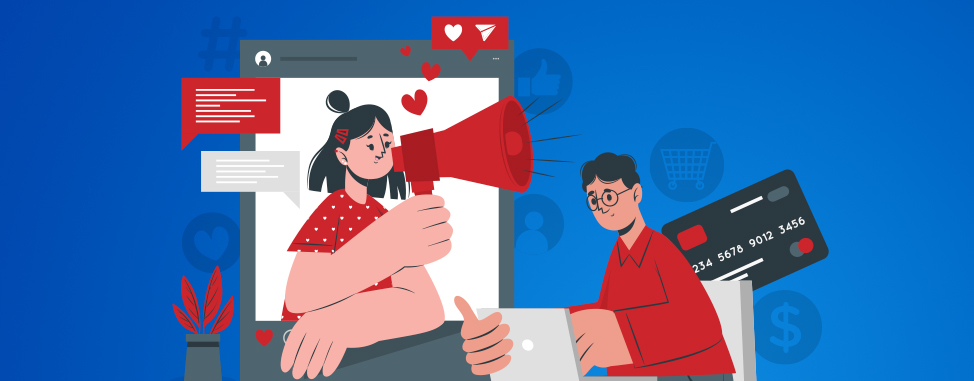
6 reasons to update WordPress
In the fast-paced world of website management, keeping your WordPress site up-to-date is more than just good practice—it's essential.
Doing your WordPress updates regularly means having the peace of mind that your site is healthy and safe. Here’s why the reverse could have catastrophic consequences for your online presence.
- Why is it so important?
- How to update your WordPress site
- What to consider before updating
- How to know when there’s an update
- Updating WordPress: Auto vs. Manual
- Act Now: Elevate Your Online Presence
Why is it so important?
WordPress continually evolves, bringing new features, improvements and security patches with each update. In 2023, while over 75% of WordPress sites used version 6, nearly 25% were still on older versions, exposing them to security risks and completely missing out on new features.
Regular updates ensure your website remains secure, performant, and compatible with the latest web standards.
Here are 6 reasons why you should update to the latest WordPress version asap:
1. Keep a good website reputation (it’s important!)
Outdated websites are more vulnerable to being infected by malware allowing online criminals to use your website in order to mass-attack high-level websites such as financial institutions, streaming sites like Netflix, social media platforms such as Facebook, etc. This could quickly get you blacklisted by Google Safe Browsing, by most anti-virus software or by major browsers.
2. Enhance your website security
Security is a top priority in website management and anywhere online, really. By updating WordPress, you equip your site with the latest security patches, significantly reducing the risk of hacking or data breaches. WordPress's open-source nature makes it a target for hackers, but updates include vital fixes for known vulnerabilities, ensuring your site's safety.
3. Get access to new features
Regular updates provide access to the latest WordPress features and functionalities, enhancing your website’s capabilities and offering more customization options. Each update brings advancements like the Gutenberg block editor and the Site Health tool, which are continuously refined to enhance your website experience.
4. Boost your website’s speed
Running your website on an older version of WordPress will likely slow it down. Each new version of WordPress brings performance improvements that enhance your website's speed and user experience. This is crucial as website speed directly impacts visitor behaviour.
In fact, 40% of visitors will leave if it takes more than 3 seconds for an e-commerce website to load. Faster websites not only offer a better user experience but also rank higher in search engine results, making updates crucial for your site's SEO success.
5. Resolve bugs and issues
Updates are vital for fixing bugs that may occur in major releases, enhancing your site's stability and functionality. Even minor WordPress releases focus on resolving specific issues, which is essential for a seamless user experience.
Proof that this is crucial, WordPress forums often suggest updating as the first step in troubleshooting bugs, emphasizing the importance of running the latest version for a bug-free experience.
6. Maintain compatibility
Updating all WordPress components (themes, plugins, WordPress core) regularly ensures they’re all from the same “generation’ and compatible. Updating some components more often than others may lead to incompatibilities and break your website.
How to update your WordPress site
When you’re ready to upgrade, you can do so from either your WordPress dashboard or cPanel. You can follow a pretty straightforward process and do it yourself or reach out to your webmaster or web developer.
If you use one of our Pro Managed WordPress plans, you can create a staging site to test out the new version. This will create a copy of your live website in a separate staging environment for testing (that won’t affect your production site).
What to consider before updating
Even though updating WordPress is critical, it's important to proceed with caution as there are potential risks. Consider these essential points before starting the process:
- Plugin/Theme Incompatibility: Be aware that not all plugins or themes may be compatible with the newest WordPress update. This mismatch can sometimes cause issues with your website's functionality.
- Watch Out for Bugs: Remember, new updates might bring their own set of bugs. These are generally addressed in subsequent updates, but it's something to be mindful of.
- Importance of Backups: Always back up your site before implementing any updates. This step is your safety net, allowing you to restore your site to its previous state if any problems occur.
- Utilize a Staging Site for Testing: Particularly for complex websites with numerous plugins, testing updates on a staging site first is highly recommended. This approach helps identify and resolve issues before they impact your live site.
How to know when there’s an update
Keeping track of every new WordPress release can be a challenge but there are several ways to stay informed:
- The official WordPress website is a primary source for update information
- Directly on the WordPress interface in the Admin panel
- The WordPress section of our blog: Learn how to get started with WordPress and all the info you need on the latest releases, themes, plugins, and more.
However, there’s a simpler and more streamlined solution: make sure to open our monthly newsletter! We send these at the end of every month and if there's a new WordPress update or anything important regarding your hosting or your website, you'll find it right there.
Updating WordPress: Auto vs. Manual
In the world of WordPress updates, think of it like this: go ahead and auto-update the little stuff, but for the big changes and fussy plugins, it's better to roll up your sleeves and update manually. Here are our handy suggestions to show you exactly what fits where!
- Minor and Major Versions: Auto-update is recommended for minor versions. For major versions, manual testing is advised before updating.
- Plugins: Auto-update is recommended for plugins that are reputable & trustworthy.
- Plugins with Dependencies: Auto-update is not recommended for plugins with dependencies (e.g. WooCommerce).
- Custom Themes: Auto-update is not advised for custom themes, especially those with child themes.
Act Now: Elevate Your Online Presence
It's time to take action and check if your WordPress site is up to date. If not, do so and embrace the latest features and security enhancements. You'll secure your site, be able to accomplish more. It’s a win-win.
Updating your WordPress is a crucial step in your journey to digital excellence. Should you have any questions, our support team is always ready to assist.
Last words: Out with the old, in with the new WordPress update.
Have yourself a good WordPress update day!

Also on the WHC Blog

What’s influencer marketing?
It's no longer a secret: the meteoric rise of social networks and the internet is opening up a host of new opportunities for businesses. These include a wide range of marketing strategies, such as influencer marketing. The...
Read full article
Divi vs Elementor: Which WordPress page builder is better?
When it comes to creating websites, a content management system (CMS) is usually a must. And in terms of CMS, WordPress is undoubtedly the international leader. Obviously, to be able to create a WordPress site that packs...
Read full article





